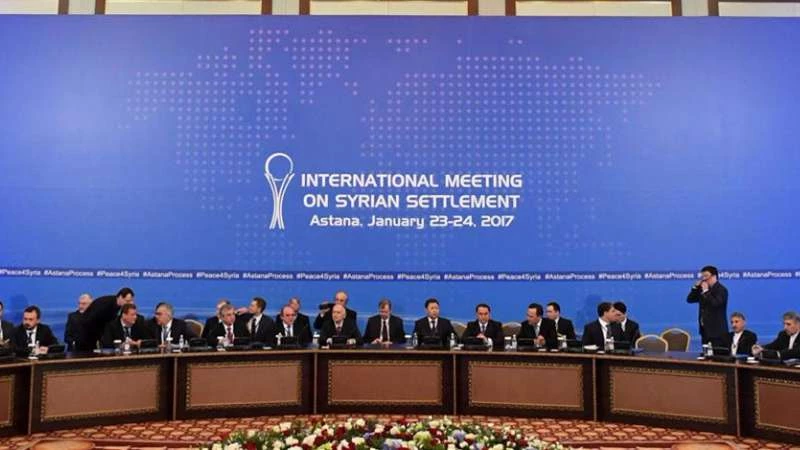Let’s start with the good news. For the first time, most of the key players in Syria are sitting at the table, namely Russia, Turkey, the Assad regime, Iran and numerous Syrian opposition groups. The US and the EU were – rightfully – sidelined as they never played a major role in the war, while claiming to be competent and influential enough to change things on the ground – a misjudgment. Also the UN, an entity not even good for feeding civilians under Assad regime siege, and the Gulf countries, which mostly gave up on arming the opposition in Syria, have vastly been ousted from the talks. Also, this could allow for honesty in the talks, as the disturbing noise of seemingly big but de facto irrelevant parties died away. And to be very clear here: The UN, EU, US and Gulf countries have an obligation to help solving the conflict in Syria and should be the main actors on the ground and in the sky. But they failed and thus made themselves redundant.
So, which parties are left to talk? Turkey is mainly interested in stability along its southern border and will therefore focus on this area, trying to make it friendly to Ankara, no matter what. Russia has always used Syria as a pawn against the west. It is neither interested in Assad nor in Syria becoming an Iranian proxy. Beyond its geopolitical aspirations (the naval base in Tartus and the military airport in Latakia province), Syria serves as a means to destabilize the region, create long-term insecurity for the west and produce more refugees – just like the Donbas region in eastern Ukraine. Assad, Iran and their terrorist proxies in Lebanon and Iraq – all of them are interested in sectarian cleansing to make Syria a purely Alawite/Shiite state, at least apart from the Kurdish north of the country. And the Syrian opposition groups, which are now in deep trouble, fighting each other in Idlib province, are on the verge of being entirely defeated around Damascus and under the threat of becoming a mere tool for Turkey’s interests in the north of the country (being allowed to fight ISIS now, the YPG probably soon but not Assad, its former biggest foe).
In conclusion, every participating party in the Astana talks has its own interests which seem more than ever inconsistent with each other, politically and even regionally. At the same time, many Syrian parties currently in Kazakhstan are about to become local proxy forces for the outside powers involved. This casts doubts on whether the slogan for the conference (Syrians must decide the future of Syria) has any realistic chance of being put into practice.
All this is taking place while Assad jets are bombarding towns and cities in Homs, Aleppo, Hama and Idlib provinces and trying to advance in East Ghouta and around Damascus, not to speak of ISIS which slowly loses to two almost mutually hostile coalitions in the north and gains ground in the east of the country.
All in all, the Astana talks seem just as ill-fated as the Geneva ones have always been. The current (slight) reduction of violence may hold as outside powers agreed to a pause in the fighting. At the same time, a sustainable “peace” is not just the absence of fighting but would need a future perspective for Syria – without Assad and other terrorist entities. It is highly unlikely that such perspective will be created in Astana.
-------------------------------------------------
Julian Röpcke is a newspaper editor and political commentator, based in the German capital, Berlin. With a degree in Political Geography and Sociology, Mr. Röpcke started analyzing geopolitical conflicts after the US-led invasion of Iraq in 2003. He covered the “Arab Spring” as well as the evolving conflicts in Syria and Ukraine from their very beginning. Julian Röpcke works for BILD, the largest newspaper and leading online news portal in Germany (@JulianRoepcke).



التعليقات (0)